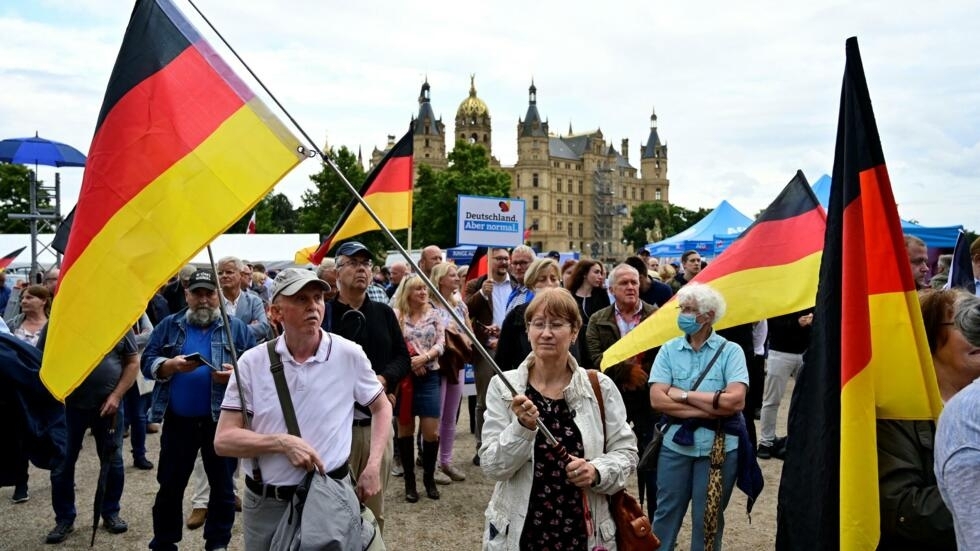For the first time since 1945, a far-right party in Germany is projected to win a regional election. The Alternative für Deutschland (AfD), established in 2013, is leading in state parliamentary elections in Thuringia, with exit polls from German state broadcaster ZDF showing the party expected to receive 33.5% of the vote.
This puts them well ahead of the Christian Democrats (CDU), who are projected to get 24.5%, marking a significant shift in German politics.
In addition to the Thuringia election, Saxony also held regional elections, where the competition between the AfD and the CDU was very tight. The newly formed left-wing party, the Sarah Wagenknecht Alliance (BSW), is anticipated to secure third place in both Thuringia and Saxony. With about 1.7 million people voting in Thuringia and 3.3 million in Saxony, the results are crucial for understanding the current political climate.

These elections are seen as a key test for German Chancellor Olaf Scholz and his coalition government. The Social Democratic Party (SPD), led by Scholz, is expected to fare poorly in both states. This underperformance reflects increasing dissatisfaction with Scholz’s coalition, which has been plagued by internal disputes and policy disagreements. The AfD has effectively used these issues to gain support, focusing heavily on immigration.
AfD co-chair Alice Weidel has praised the results in Thuringia as a “historic success,” attributing the outcome to widespread discontent with Scholz’s government. She argues that the strong showing for the AfD suggests the need for potential new elections, asserting that the current coalition is failing to represent the electorate’s values.
However, despite this electoral success, the AfD might find it challenging to form a regional government due to difficulties in finding coalition partners.
The AfD, which faces scrutiny from Germany’s intelligence agency for suspected right-wing extremism, could struggle to convert its electoral gains into effective governance.
The party’s top candidate in Thuringia, Björn Höcke, has been fined for using Nazi slogans, adding to the controversy surrounding the party. As regional elections continue, with Brandenburg set to vote on September 22, the growing influence of the far-right remains a significant concern.
